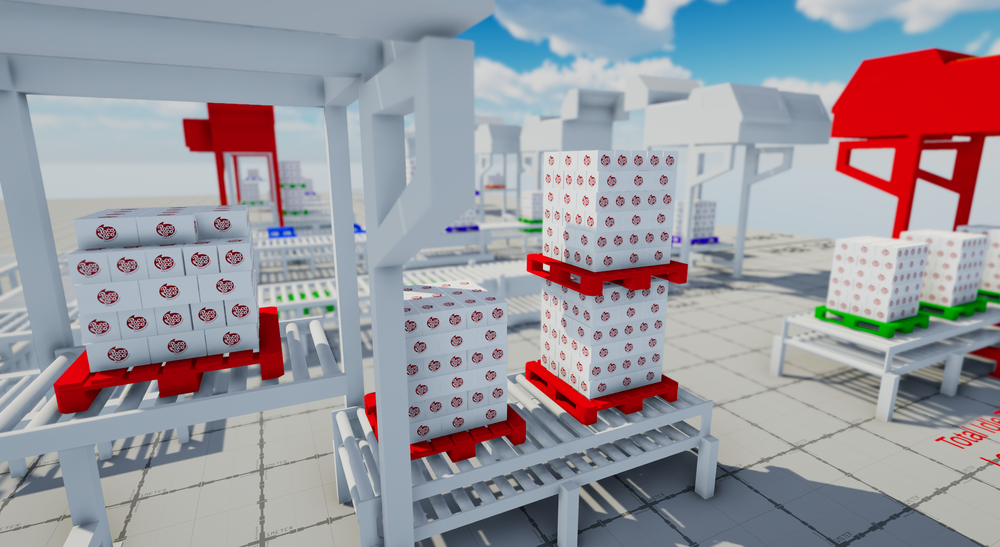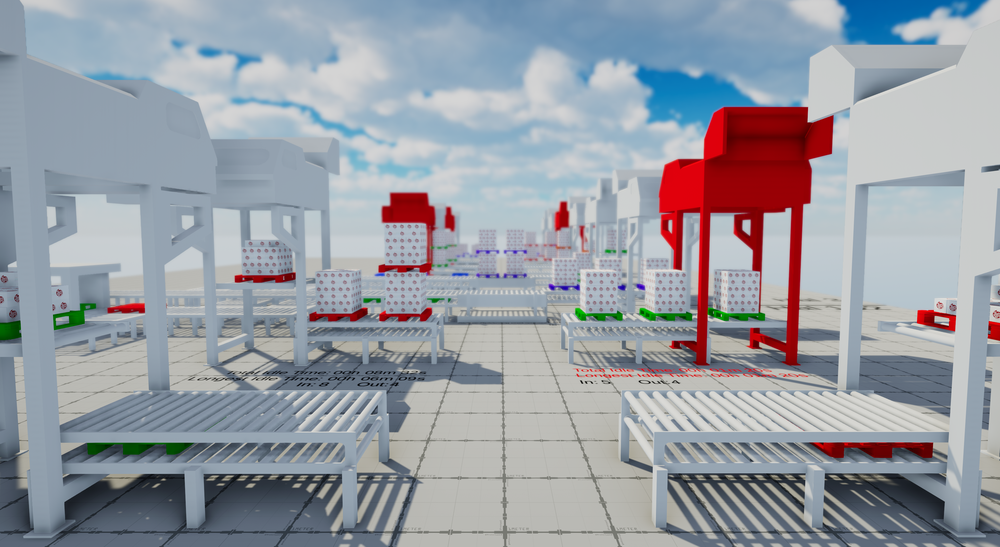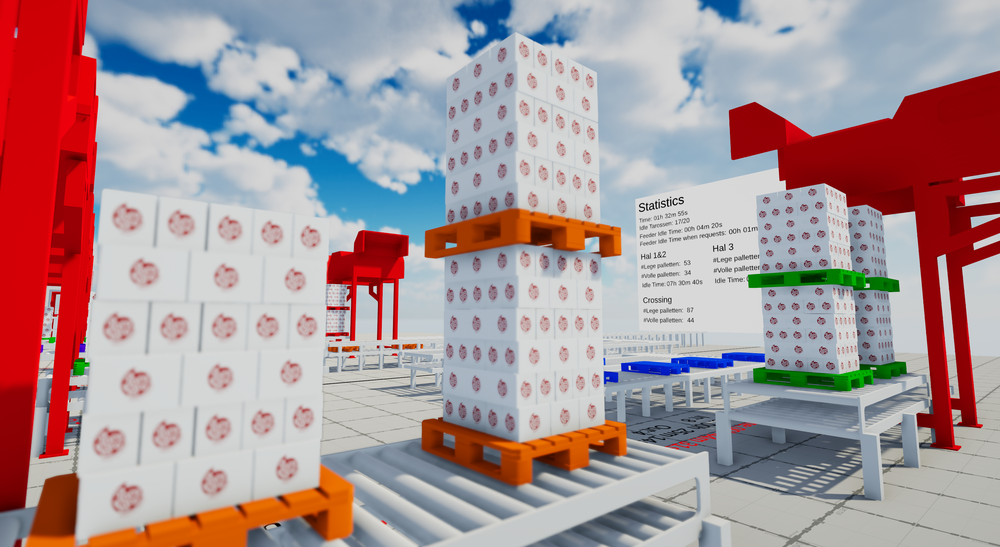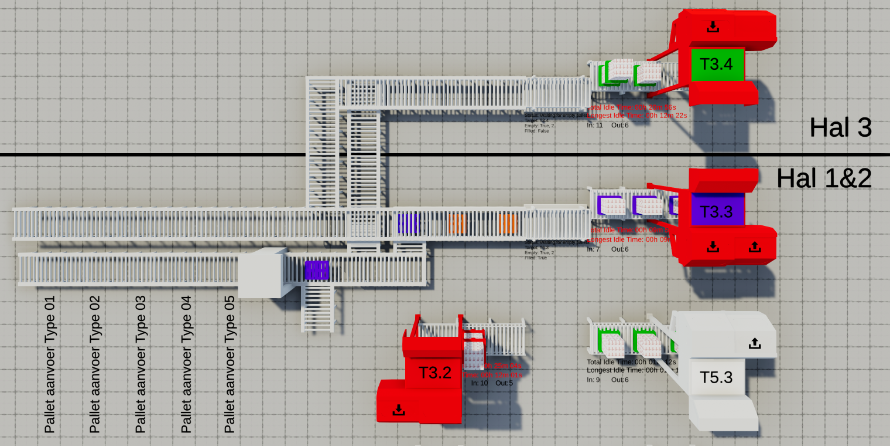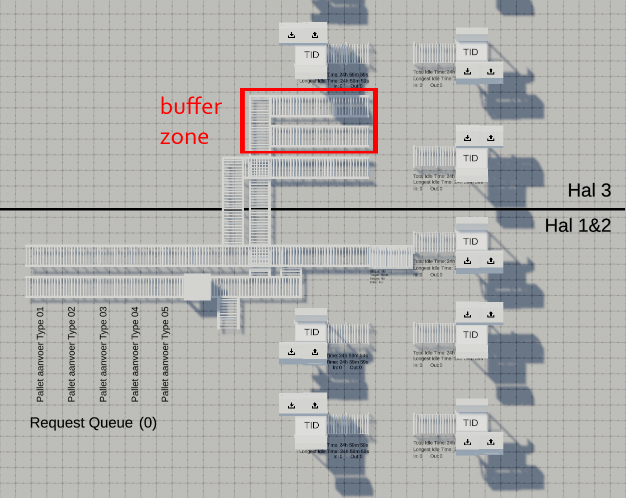objectively determine expected returns from an investment
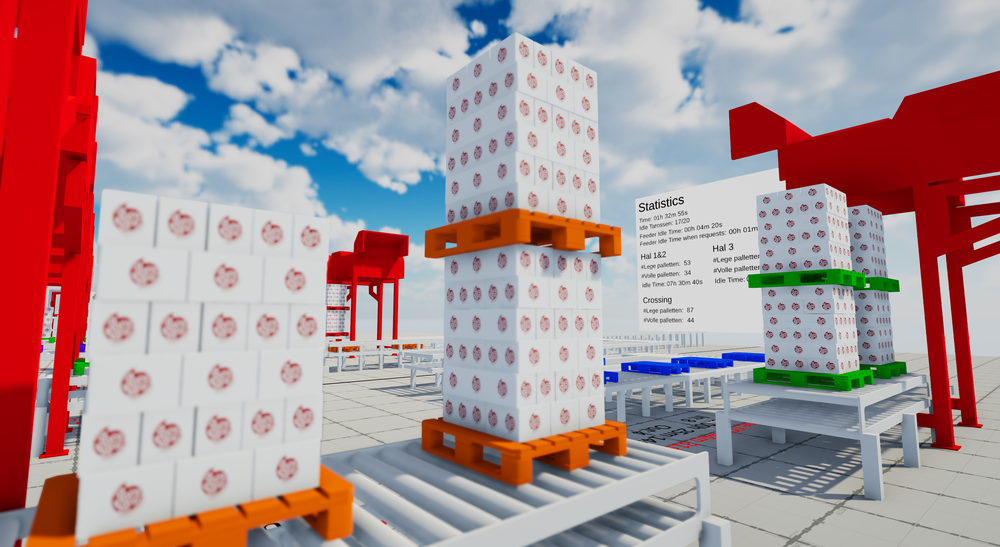
About
Company
PocoLocoLocation
Roeselare, BelgiumCompetences
digital twin
throughput analysis
virtual simulation
concept validation
production optimalisation
warehouse optimization
virtual optimization & validation of a new warehouse design
relevance
Snack Food Poco Loco, located at Roeselare, Belgium, is part of the Finnish group Paulig. It is a major producer of private label tex-mexproducts realising a turnover of 270m EUR and employing more than 680 people.
"Being able to objectively evaluate different what-if scenarios with the help of a Digital Twin, automatically result in optimal investment decisions."

Pieter T'Joens
Operations Development Manager - PocoLoco
Challenge
To support future growth, Poco Loco wanted to expand the capacity of their packaging line. A clear capacity target was set, what to change in order to achieve this had to be investigated.
The packaging process can shortly be described as follows:
- Empty pallets come from a pallet feeder line and pass through a pallet checker.
- The pallets go to two different packaging lines. Pallet transport is done by pallet shuttles.
- The case packers stack the boxes onto pallets and notify when the full pallets are ready.
- Finally, the shuttles pick up the filled pallets and transport them to the exit line.
Additionally, Poco Loco faced very limited physical space constraints.
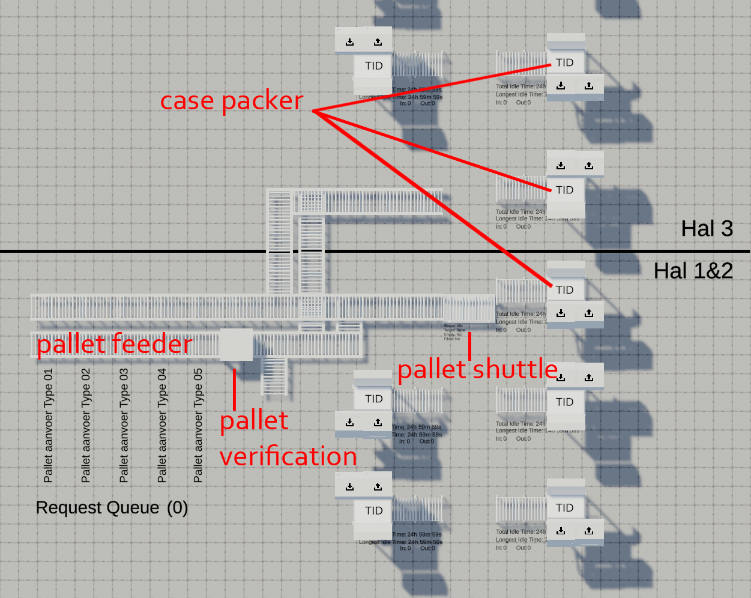
solution
To pinpoint the problems with the current packaging setup and to verify whether the proposed solution would suffice, vintecc created a digital twin of the packaging line.
1 virtual packaging line
- Based on talks with Poco Loco experts and using 3D CAD files, we built a virtual packaging line. The true behaviour and timings of the various components were mapped onto the virtual world.
- Simulation results were compared with throughput statistics of the actual system. This ensured that virtual and real systems acted the same.
2 implementing proposed solution
- In a second phase, the solution proposed by the Poco Loco experts was added to the simulation model and validated in a wide range of typical scenarios.
- Contradictory to the expectations, the hardware solution PocoLoco had in mind, did not solve the throughput problem!
3 investigated alternatives
- Moving forward, vintecc rebuilt the packaging line piece by piece to get a very clear understanding of the underlying fundamental problems.
- Using the digital twin, vintecc investigated alternatives in how pallet requests were handled.
4 testing new throughput strategies
- vintecc simulated a number of what-if scenarios to evaluate the impact of certain proposed changes. Certain strategies greatly improved the capacity of the full packaging line, resulting in less case packer idle time and – ultimately – in an overall increase in throughput without any additional hardware investments.
- Furthermore, our experience with the digital twin allowed us to propose even more optimizations and recommendations.
results
1 critical recommendations
- In retrospect, the Poco Loco case was a success. The digital twin technology developed by vintecc allowed simulating a lot of different scenarios and strategies in a very short time, ultimately leading to a number of critical recommendations that allowed Poco Loco to make an informed decision how to optimally direct investments.
2 throughput optimization instead of expensive hardware
- vintecc was able to recommend a throughput optimization for a better and more fluent work flow instead of adding new hardware.
- An expensive and unnecessary hardware investment - which would turn out even worse - could be avoided.
